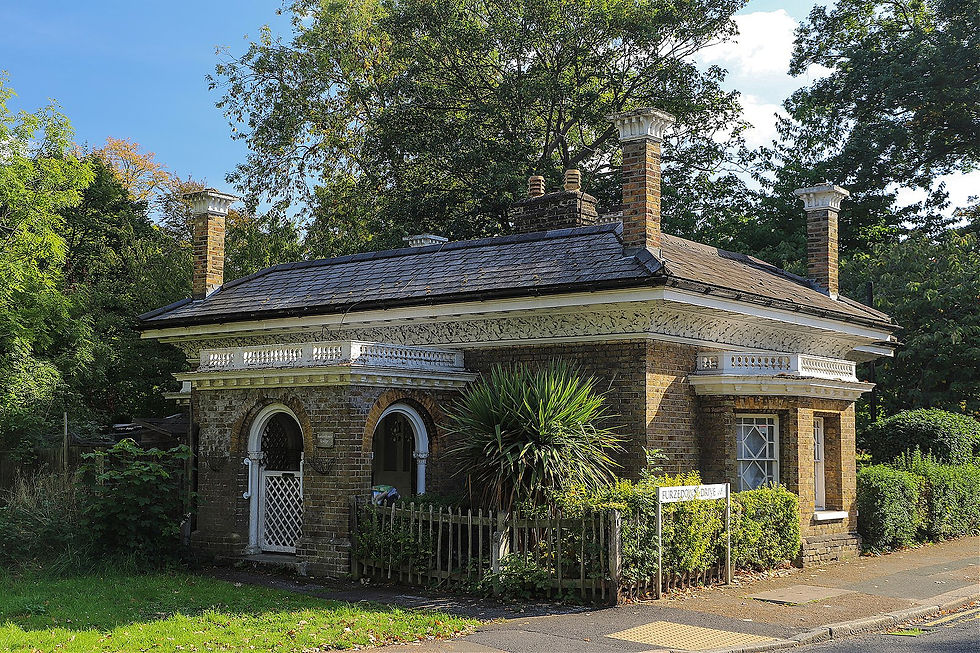Should You Move Out of Home When Having Building Works Carried Out?
- The Furzedown Builder

- Jun 12, 2024
- 4 min read
Deciding whether to stay put or temporarily move out during building works is a common dilemma for homeowners. Renovations can bring significant improvements to your home but often come with a fair amount of disruption. This guide will help you weigh the pros and cons of staying versus moving out, ensuring you make the best decision for your situation.

Staying at Home: Pros and Cons
Pros:
Cost Savings - Staying home means you won’t incur additional accommodation costs. If you’re on a tight budget, avoiding these extra expenses can be crucial.
On-Site Decision Making - Being present allows you to monitor the progress closely and make real-time decisions. This can help address any issues or changes that arise quickly.
Familiarity and Comfort - Even with the noise and dust, staying in your own home can be more comfortable than relocating. You have access to all your belongings and can maintain your usual routines as much as possible.
Security - Staying home allows you to keep an eye on your property, reducing concerns about theft or damage.
Cons:
Disruption - Building works can be noisy, dusty, and generally disruptive. Living in a construction zone can be stressful, especially if you have young children or work from home.
Limited Access - Certain areas of your home might be off-limits during the renovation. This can make everyday tasks inconvenient, such as cooking if the kitchen is being remodelled or bathing if the bathroom is under construction.
Health Concerns - Dust, fumes, and debris can pose health risks, particularly for individuals with allergies, respiratory issues, or other health conditions.
Inconvenience - Utilities might be temporarily cut off, and there can be restrictions on when you can use certain rooms or facilities.
Moving Out: Pros and Cons
Pros:
Reduced Stress - Moving out can significantly reduce the stress and inconvenience of living through a renovation. You avoid the noise, dust, and restricted access to parts of your home.
Efficiency - Without occupants, builders can often work more efficiently. They may be able to complete the project faster without having to work around your schedule or needs.
Safety - You avoid potential hazards associated with construction, such as falling debris, exposed wiring, or unfinished floors.
Better Living Conditions - Staying in a hotel, rental property, or with family can provide a more comfortable and stable environment during the disruption of home renovations.
Cons:
Additional Costs - Accommodation costs can add up quickly, and you may also incur expenses for storage or temporary utilities at your temporary residence.
Less Control - Being away from the site can make it harder to keep track of the progress and make on-the-spot decisions. This could lead to misunderstandings or delays if issues need to be resolved.
Disconnection - You might feel disconnected from your home and the renovation process. Important changes or corrections might not be as readily apparent when you’re not there daily.
Logistics - Moving out requires planning and coordination, which can add another layer of complexity to an already busy time. Finding suitable accommodation, packing, and setting up a temporary home can be time-consuming and stressful.
Factors to Consider
Scope of the Project - Large-scale renovations, such as structural changes or full-house remodels, often warrant moving out. For smaller projects, such as a single-room renovation, staying home might be feasible.
Duration - Consider how long the project will take. Short-term disruptions might be bearable, but longer projects could make moving out more appealing.
Health and Safety - Assess the potential risks associated with staying in a construction zone. If there are significant safety concerns or health risks, moving out is likely the better option.
Family Needs - Take into account the needs of all family members. Children, elderly family members, and pets might struggle more with the disruptions and hazards of staying home during renovations.
Budget - Evaluate your budget to see if it can accommodate the extra costs of moving out. Factor in accommodation, storage, and potential additional costs for the renovation itself.
Tips for Staying Home During Renovation
Create a Safe Zone - Designate an area of your home as a "safe zone" where you can retreat from the noise and mess. This space should be kept as clean and comfortable as possible.
Clear Communication - Maintain clear communication with your builders. Regular updates and a clear schedule can help you plan your days around the work being done.
Use Temporary Facilities - If key areas like the kitchen or bathroom are being renovated, consider setting up temporary facilities. A mini fridge, microwave, or portable toilet can make life more manageable.
Plan Around the Work - Schedule your daily activities around the builder's timetable. If possible, try to spend time outside the home during the busiest work hours.
Conclusion
Deciding whether to move out or stay during building works depends on various factors, including the project's scope, your budget, and your tolerance for disruption. While moving out can provide comfort and safety, staying home can save costs and allow for closer supervision of the work. Ultimately, the choice should align with your personal circumstances and project requirements.
At Furzedown Builders, we strive to minimise disruption and make the renovation process as smooth as possible, whether you choose to stay or move out. Contact us today to discuss your upcoming project and how we can help you achieve your renovation goals with minimal stress and maximum satisfaction.



